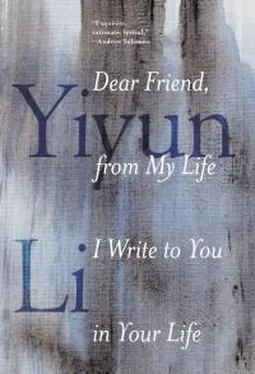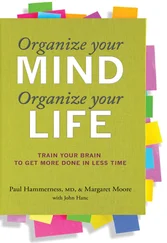Impatience is an impulse to alter or impose. Suicide is a kind of impatience people rarely understand, I replied to the friend, and quoted an Elizabeth Bishop letter in defense.
—
IN THE LAST year of high school I had the habit of playing truant, not worried about being caught. I was in charge of keeping attendance, trusted by the teachers, once in a while persuaded by my classmates away from accuracy. On one dreary winter afternoon, I skipped classes and walked in the run-down alleys near the school—now these alleys are lined with chic pubs and sophisticated eateries catering to expats and tourists. I was looking for a place I had read about in newspapers—the first and only one of its kind in the city, the article had said. This was before the time of telephones, and I did not have a map. It took me nearly two hours to find the place, a quadrangle among residential quadrangles, with more than ten plaques bearing the names of different organizations by the gate. I entered the courtyard and saw stacks of coal bricks piled up near one wall, several bicycles leaning against another. A woman came out of a door and asked me what I wanted. I’m looking for the Office of Volunteers for the Mental Health of the Next Generation, I said. The woman sighed heavily. I can’t believe it, she said to someone inside; here’s another one of those crazy kids. She then turned to me and said, They are not in today; go back and live your life, don’t ever come here again.
The indifference of strangers is not far from that of characters, yet the latter do not make one feel exposed. They have no interest in interfering with my life; they have neither the time nor the curiosity to ask me questions; they do not preserve me in the amber of their memories. What else does one want from people but that kind of freedom—an existence closest to nonexistence?
The indifferent, though, have their powers. Again and again I let them usurp my dreams, and again and again they evict me from their world, oblivious of any attachment. Now go back to your real life —they dismiss me with the same words I used to end my phone calls to friends with, dismissing myself and masking it with lightheartedness. Do you, a friend asked me years ago, understand that you are in people’s real lives? I remember feeling shocked—at the time, the only real people were my characters. When a book is finished, to mitigate the emptiness of their leave-taking, one kills them in a gentle manner—if there is any violence in imagining the action it is as secretive as a suicidal thought lodged in the corner of one’s mind. Is writing not my way of rehearsing death?
I had gone to London with the thought of erasing a novel from the record, telling people it could not be finished and leaving the draft entombed in my computer. Not a rehearsal of death, but a clean severance. This novel had brought out of me unkindness against others and uncharitableness against myself. It had nearly derailed a friendship. It made me question which life—mine or the book’s—mattered; perhaps neither did. Years earlier my husband had cautioned me that writing would require more than a scientific career. No real madness, no real art, he quoted an old Chinese saying, but I had refused to consider it an obstacle. If I had writing, what was there to fear?
Can one’s life be at the mercy of one’s characters? The possibility seems ludicrous, yet in my unraveling they were no longer my allies, confiscating from me the boundary I had so adamantly maintained between writing and the rest of living, which, I had believed until then, was to live minimally, to live but on the surface, to not live. One cannot sustain that kind of in-between—living and yet not living—forever. For the first time I wanted my life to be as legitimate as my characters’, as solid, as habitable. Make me real, as you are to me—this cry could only be directed toward my characters. They were not meant to see me; why then let the novel live on? I had refused realness to people in my life; why then let myself linger?
How could you have thought of suicide when you have people you love? How could you have forgotten those who love you? These questions were asked, again and again. But love is the wrong thing to question. One does not will oneself to love; one does not kill oneself because one ceases to love. The difficulty is that love erases: the more faded one becomes, the more easily one loves.
My muddle, in retrospect, is clear: I had underestimated my aversion to wanting anything; I had overestimated my capacity to want nothing.
—
ONE AFTERNOON IN London I made a call to Trevor. He told me about the spinal pains that had been afflicting him. Don’t waste your sympathy on me, he said; I’m an old man. Then he asked about the novel. It’s near finished, I lied, and he advocated for letting the work go and not lingering.
The next day, I went to the British Museum, always a trustworthy place to lose oneself among the living and the long-gone. Afterward, in a bookshop not far from the museum, I bought a copy of Letters to Monica, a selection of Philip Larkin’s letters to Monica Jones, spanning nearly forty years. As with Katherine Mansfield, whose world I had entered with the simple goal of distracting myself when I purchased her notebooks in a secondhand bookstore, I picked up the letters because Larkin and Jones were irrelevant at that moment.
I sat in the bookshop café until closing time. In an early note Larkin compares a scathing letter from Jones to a letter, “charitably left unposted,” from Mansfield to a young man named Frederick Goodyear. It starts with her telling Goodyear that he has misread her as a possible mistress, a few lines later lapses into an intimate and good-humored account of her day in a French villa, and ends with her request that he write again and signed, “With my ‘strictly relative’ love ‘K.M.’ ”
Mansfield’s letter would have been only a footnote to Larkin’s correspondence—one underlines them all the time, thinking of looking them up later yet rarely doing so—except for the odd coincidence that I had read a draft of it the day before in Mansfield’s journal. The language was so vehement that I had written in the margin, What’s going on?! (The letter is also in Mansfield’s Selected Letters, with no indication whether it was sent . Larkin’s belief that it was charitably unposted is appealing.)
Unsent letters carry a kind of cruelty. A letter is written as a space shared by two people; by not sending it, its writer claims the power to include and exclude the recipient simultaneously. Out of cowardice or control an act is performed in the name of caring or discretion. Unsent letters should never be written. But what difference is there between an unsent and an unwritten letter? The truth is already there. Self-imposed silence speaks, too, though not to communicate but to punish.
—
IN THE SAME letter to Jones, in order to prove that he is not trustworthy, Larkin states that, rather than “a favorable image” constructed by her, he is more like “Portia’s Eddie—or even Portia’s father.” Eddie and Portia and her father come from Elizabeth Bowen’s novel The Death of the Heart. The reference was startling. The novel I was considering abandoning had been written in conversation with Bowen’s novel. (One of the few fond memories about the ill-fated novel: I was in a basement in Los Angeles, talking with a radio interviewer, his eyes bloodshot from too much reading. I must ask this question before we go into the studio, he said, an old copy of The Death of the Heart in his hand; was this book on your mind when you wrote your novel? He was the only person to make the connection.)
But to call my novel a conversation with Bowen’s book is inaccurate, as the novel was an anticonversation, written in a kind of competition, a kind of antagonism, yet all the time entirely under the spell of The Death of the Heart. To articulate it demands honesty that I am almost unwilling to offer. Though evasion rarely leads to joy; there is, one must admit, a sense of joy if one can dissect something, oneself included, with precision. (In college and as a young scientist the tasks I had most enjoyed were the peripheral activities: to peel everything away and leave only the neural system intact in an insect; to harvest the bone marrow from a mouse’s femur until the bone became nearly transparent; to carefully flush out a mouse’s lungs. Perhaps my deficiency as a scientist, a lack of ultimate purpose, is why I love writing. Precision gives me more pleasure than the end result.)
Читать дальше












